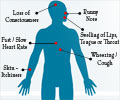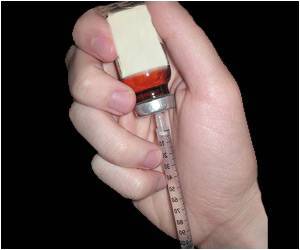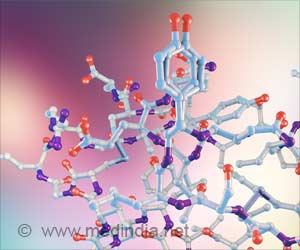It is a must for every child to be vaccinated against diphtheria-tetanus-pertussis.
It is a must for every child to be vaccinated against diphtheria-tetanus-pertussis. The fifth and last vaccine (DTaP) given to children causes a red splotch to develop on the area.
This reaction can last a few days and the problem is that neither of two common drugs--ibuprofen (Advil) and acetaminophen (Tylenol)--help prevent this side effect. A Group Health Cooperative study appearing in the March issue of Paediatrics features this report.Lisa A. Jackson, MD, MPH, a senior investigator at Group Health's Center for Health Studies and the study's lead investigator said, "Often children don't notice they have it. But it can concern parents, leading to medical visits or even needless antibiotic treatment, so we'd like to make it rarer."
372 children from 4 to 6 years old who were due for their fifth DTaP dose after getting 4 doses of this vaccine since age 2 months were observed. Four in 10 children were randomly assigned to receive ibuprofen; 4 in 10, acetaminophen; and 2 in 10, placebo.
The medication was given preventively 3 times: at 2 hours before, and 6 and 12 hours after, the vaccination. About a third of each group had local reactions at least 2 inches wide. The placebo and treatment groups did not differ significantly in their proportions of children whose reactions lasted at least 3 days or whose vaccinated limb swelled by about 1 inch or more.
As an explanation by Jackson, "Acetaminophen is an effective anti-pyretic (fever reducer). But it isn't an anti-inflammatory (inflammation reducer). We certainly thought that ibuprofen, through its anti-inflammatory effect, might make the local reactions less common or severe. We all want to decrease discomfort in children, so we were disappointed not to show a prevention effect for ibuprofen; but on the other hand we got a fairly definitive answer, and that's why we do research."
The acellular vaccine, licensed in 1997, contains only those parts of the diphtheria (whooping cough) bacteria that are critical to providing immunity. The previous version--whole cellular DTP vaccine--contained whole bacteria. The newer acellular shot results in less fever in 2- and 4-month-old babies than did the older whole-cell shot. This is significant because fever can lead to seizures--rare, but serious, adverse events associated with the DTP shot.











